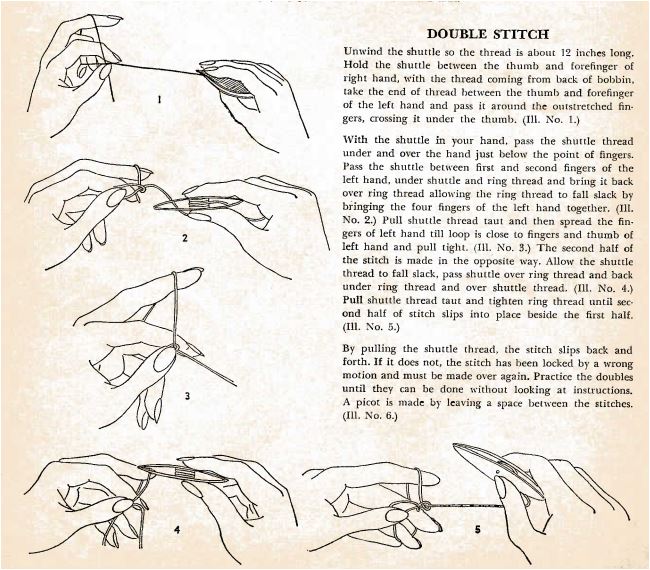What is Tatting?
Tatting is a technique for handcrafting a particularly durable lace constructed by a series of knots and loops. Use it to make lace edging as well as doilies, collars, and other decorative pieces.
Completely different from crochet, you use stitches that form knots.
Tatting lace can imitate point lace, and is often used for trimming linen.
You form the lace with a pattern of rings and chains formed from a series of half-hitch knots, called double stitches, over a core thread. Gaps are left between the stitches to form picots.
Tatting dates to the early 19th century. The term for tatting in most European languages is derived from French frivolité, which refers to the purely decorative nature of the textiles produced by this technique.
Older designs, especially through the early 1900s, tend to use fine white or ivory thread (50 to 100 widths to the inch) and intricate designs.
Newer designs from the 1920s and onward often use thicker thread in one or more colors. The best thread for tatting is a “hard” thread that does not untwist readily. DMC Cordonnet thread is a common tatting thread; Perl cotton is an example of a beautiful cord but is a bit loose to use for tatting.
The sky is the limit when it comes to embellishing tatting designs. Many incorporate ribbons and beads to make them sparkle.
PDF File Download Link
Here’s just a sample of the instructions in the PDF file. The pattern links are at the end of the post.

Download Instructions: Right-Click the link and select either “save target as” or “save link as” depending on what browser you are using or simply click on it and save or print.
Tatting Tutorial Video
Besides downloading the instructions below, there are several video demonstrations of Tatting on YouTube. It may help to watch someone tatting. I especially liked this tutorial video: Tatting Instruction Video
Tatting Patterns
I’ve included several vintage tatting patterns too, a rosette and several edgings.
Hope you have fun giving this great needlework craft a try.
If you like this post, be sure to share it with your friends. And like our Facebook Page to get updates every time we post new patterns.
Enjoy!
This post may contain affiliate links. If you make a purchase after clicking on these links, I will earn a small commission. This helps to keep the content free. Read my full disclosure policy.


3 comments